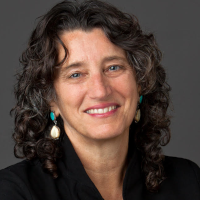Gain skills to build embodiment practices in your clients.
Presented by Elizabeth Scott, LCSW, CEDS-S
2 CEs available
Free for Marin CAMFT members and reciprocal chapter members!
Workshop Description
Elizabeth Scott LCSW, CEDS-S, will introduce the rich resources available in the Be Body Positive Model for clinicians working with clients with disrupted embodiment. You will learn about a model for therapy that includes an analysis of power and agency and its impact on the client’s relationship to their body and self-care. We will discuss the social conditions that contribute to disruptions in embodiment like eating disorders, self-harm and substance abuse, and how a cultural perspective in clinical treatment can empower providers to challenge power inequities and oppressive social conditions in their client’s lives. She will explain why it is useful to shift from a focus on “body image” to “embodiment” and the value of promoting self-compassion instead of self-esteem.
Educational Goals
The goal of this presentation is to:
- Introduce the five competencies of the Be Body Positive model that support resilience against disruptions in embodiment like eating disorders.
- Discuss practical applications to bring to clinical work with clients.
Learning Objectives
Upon completion of this workshop, participants should be able to:
-
Identify the five competencies of the Be Body Positive model
-
Discuss how the client’s identity and social location impact their relationship to the body.
-
Use three interventions that promote positive embodiment in clients.
- Describe the difference between self-compassion and self-esteem based on the research of Kristen Neff.
Presenter
 Elizabeth Scott LCSW, CEDS-S, is an educator and psychotherapist whose work focuses on the intersection of embodiment, social justice and mindfulness. As Co-Founder and Director of Training for The Body Positive, Elizabeth trains educators and students to use the Be Body Positive model to promote joyful embodiment and excellent self-care. She developed the Big-Hearted Embodiment certification training and is building an international community of clinicians who are committed to social justice and positive embodiment as core values in their treatment work. Elizabeth has studied yoga, breathwork and socially engaged Buddhism for 33 years. She practices psychotherapy in the San Francisco Bay Area.
Elizabeth Scott LCSW, CEDS-S, is an educator and psychotherapist whose work focuses on the intersection of embodiment, social justice and mindfulness. As Co-Founder and Director of Training for The Body Positive, Elizabeth trains educators and students to use the Be Body Positive model to promote joyful embodiment and excellent self-care. She developed the Big-Hearted Embodiment certification training and is building an international community of clinicians who are committed to social justice and positive embodiment as core values in their treatment work. Elizabeth has studied yoga, breathwork and socially engaged Buddhism for 33 years. She practices psychotherapy in the San Francisco Bay Area.
PLEASE NOTE: This event will be recorded. By registering for this event you are consenting to a recording being made which may include your voice and/or image. This recording may be available for review and downloading. By registering for this event, you are agreeing for your likeliness to possibly be used by Marin CAMFT.
The Zoom link and password are provided in the registration confirmation email after sign-up is completed.
Attendance at the live event in full and completion of the evaluation at the end qualifies for 2 hours of Continuing Education (2 CEUs).
Date: Friday, June 9
Time: 12 noon to 2 pm Pacific
Cost: Free for Marin CAMFT members and reciprocal members, $20 for non-members.
Location: Online via Zoom. Password and link sent upon registration.
Additional Information about Marin CAMFT CE Programs
For more information about the Friday Continuing Education Series or about joining the Marin CAMFT Continuing Education Committee, please contact our Director of Programs Norman Hering.
- Grievance Procedure: Marin CAMFT will respond to complaints in a reasonable, ethical and timely manner, when submitted by program attendees in writing to the Director of Programs.
- Anti-Discrimination Policy: Marin CAMFT shall not discriminate against any individual or group with respect to any service, program or activity based on gender or gender identity, sexual orientation, ethnicity, race, creed, national origin, citizenship status, religion, age, ability, or other prohibited basis. Marin CAMFT does not require attendees to adhere to any particular religion or creed in order to participate in training. Marin CAMFT will not promote or advocate for a single modality of treatment that is discriminatory or likely to harm clients based on current accepted standards or practice.
Continuing education credits are available for attendance in the Zoom presentation. You must stay on the Zoom meeting for the entirety of the training and complete the course evaluation afterward in order to receive a completion certificate. Because of the requirement to attend the training in full, if you attempt to log in to the Zoom late, after the training is already underway, you may not be admitted. Please log onto the event promptly at the listed start time.
 CAMFT
CAMFT CAMFT
CAMFT